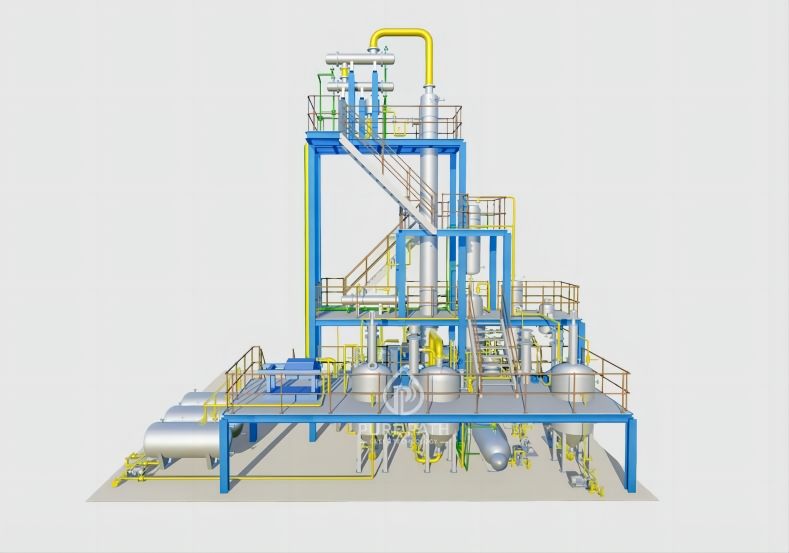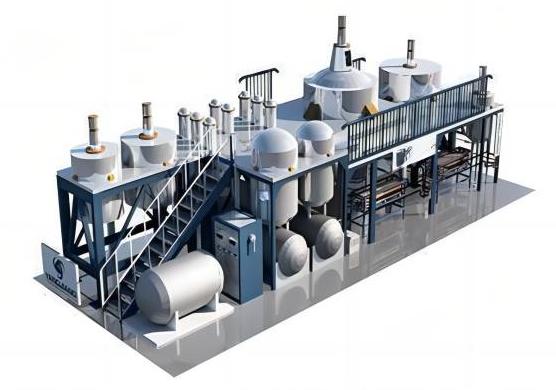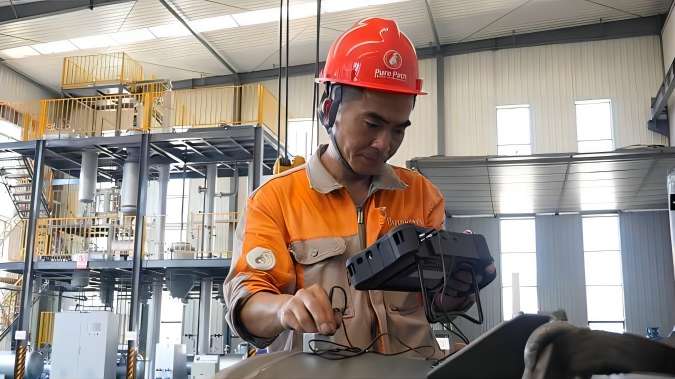Selecting the Right Oil Solvent Extraction Plant for Your Needs
Recycling lube oil is not only environmentally beneficial but also economically wise, reducing waste and conserving resources. Selecting the right oil solvent extraction plant is critical for ensuring efficient and effective recycling. Here, we outline essential considerations to guide you in choosing the best plant for your needs.

Understanding Your Requirements
Before embarking on the selection of an oil solvent extraction plant for lube oil recycling, it’s imperative to thoroughly understand your specific requirements. A clear grasp of your operational needs and constraints will guide you in choosing a plant that aligns perfectly with your goals. Here are the key areas to consider:
1. Capacity Needs
The first step is to determine the volume of lube oil you need to process. This involves understanding both your current and projected recycling needs. Ask yourself:
- How much lube oil do you generate for recycling on a daily, weekly, or monthly basis?
- Do you anticipate an increase in volume due to business growth or additional sources of used oil?
Knowing the capacity requirements will help you choose a plant that can handle your throughput without causing delays or bottlenecks. It’s crucial to select a plant that can efficiently manage your volume to avoid overburdening the system, which can lead to inefficiencies and increased maintenance costs.
2. Type of Lube Oil
Different types of lube oils have varying properties and contamination levels, requiring distinct processing techniques. It’s important to categorize the types of lube oils you plan to recycle, such as:
- Engine oils
- Hydraulic oils
- Gear oils
- Transmission fluids
Each type may have unique impurities and require specific treatment processes. Understanding the diversity of lube oils you handle will ensure that the chosen extraction plant is versatile and capable of efficiently processing all types.
3. Quality Standards
Define the quality standards for the recycled oil. The end product should meet industry specifications for reusability. Consider the following:
- What are the required purity levels for the recycled oil?
- Are there specific contaminant thresholds that need to be met?
- What are the performance standards for the recycled oil compared to virgin oil?
Having clear quality benchmarks will help you select a plant equipped with the necessary technology and processes to achieve these standards. High-quality recycled oil can be reused in various applications, thus maximizing the value of your investment.
4. Budget Constraints
Understanding your financial limits is a critical component of selecting the right plant. Consider both the initial investment and the long-term operational costs. Key questions include:
- What is your budget for the initial purchase and installation of the plant?
- What are the expected ongoing operational and maintenance costs?
- Are there financing options or grants available that could support your investment?
Balancing cost with functionality is essential. While it might be tempting to opt for the cheapest option, it’s important to ensure that the plant you choose will deliver reliable performance and durability, minimizing long-term costs.
5. Space and Infrastructure
Evaluate the available space and existing infrastructure at your facility. Important considerations include:
- Do you have sufficient space to accommodate the plant and any auxiliary equipment?
- Are there any specific site preparation requirements, such as foundation work or electrical upgrades?
- How will the plant integrate with your current workflow and logistics?
Ensuring that the plant can be easily installed and integrated into your facility without significant modifications will save time and reduce additional expenses.

Key Factors to Evaluate When Choosing a Solvent Extraction Plant
When selecting a solvent extraction plant for lube oil recycling, careful evaluation of various factors is crucial. The right plant can enhance efficiency, lower operational costs, and ensure the production of high-quality recycled oil. Here, we delve deeper into the key factors to consider:
1. Efficiency
Efficiency is paramount in choosing a solvent extraction plant. High efficiency in separating contaminants from lube oil ensures that the end product meets or exceeds industry standards. Consider the following aspects:
- Separation Technology: Advanced separation technologies, such as membrane filtration or advanced distillation methods, can significantly improve the removal of impurities.
- Process Speed: Evaluate the speed at which the plant can process lube oil. Faster processing times can increase throughput, allowing you to handle larger volumes efficiently.
- Yield: Look for systems that maximize the yield of reusable oil from the recycled lube oil. High yield reduces waste and enhances profitability.
2. Solvent Recovery
Solvent recovery is a critical component of the extraction process. Efficient recovery systems reduce the need for fresh solvent, lowering both costs and environmental impact. Key points to consider include:
- Recovery Rate: The percentage of solvent that can be recovered and reused in the process. Higher recovery rates are more economical and sustainable.
- Purity of Recovered Solvent: The quality of the recovered solvent should be high enough to be reused without additional purification.
- System Integration: Ensure that the recovery system is well-integrated with the extraction process to minimize downtime and operational complexity.
3. Automation and Control
Modern solvent extraction plants often feature advanced automation and control systems, which are essential for consistent and reliable operation. Benefits of automation include:
- Precision: Automated systems provide precise control over process parameters, ensuring optimal extraction conditions.
- Consistency: Automation reduces human error, leading to consistent product quality.
- Monitoring and Reporting: Advanced control systems can monitor the process in real-time, provide detailed reports, and alert operators to any issues, facilitating proactive maintenance.

4. Energy Consumption
Energy costs constitute a significant portion of the operating expenses for solvent extraction plants. Thus, energy consumption is a critical factor:
- Energy Efficiency: Evaluate the plant’s energy efficiency, looking for systems that consume less power without compromising performance.
- Energy Recovery Systems: Some plants incorporate energy recovery systems, such as heat exchangers, to reuse energy within the process, further reducing costs.
- Sustainability: Lower energy consumption not only reduces operational costs but also minimizes the environmental footprint of the recycling operation.
5. Safety Features
Ensuring safety in operation is non-negotiable. Look for plants with robust safety features to protect both personnel and equipment:
- Explosion-Proof Design: Given the flammable nature of some solvents, an explosion-proof design is essential.
- Emergency Shutdown Systems: These systems allow for quick shutdown in case of any abnormalities, preventing accidents.
- Compliance with Safety Standards: Ensure the plant meets all relevant safety regulations and standards, which can vary by region and industry.
Additional Considerations for Buyers
When choosing a solvent extraction plant for lube oil recycling, prioritize factors like ease of installation and maintenance to minimize downtime. Ensure the plant’s design fits your space and offers accessible components for straightforward upkeep. Comprehensive technical support and training from the supplier are essential for smooth operation and quick issue resolution.
Scalability is key; opt for a modular design that allows easy expansion as your needs grow. Verify the plant complies with environmental and safety regulations to avoid legal issues. Conduct a cost-benefit analysis considering initial investment, operational costs, and potential savings from recycled oil.
Lastly, choose a supplier with a solid reputation and industry experience, offering reliable post-sale service and support. These considerations will help you select a solvent extraction plant that meets your requirements for efficiency, compliance, and long-term sustainability in lube oil recycling.







